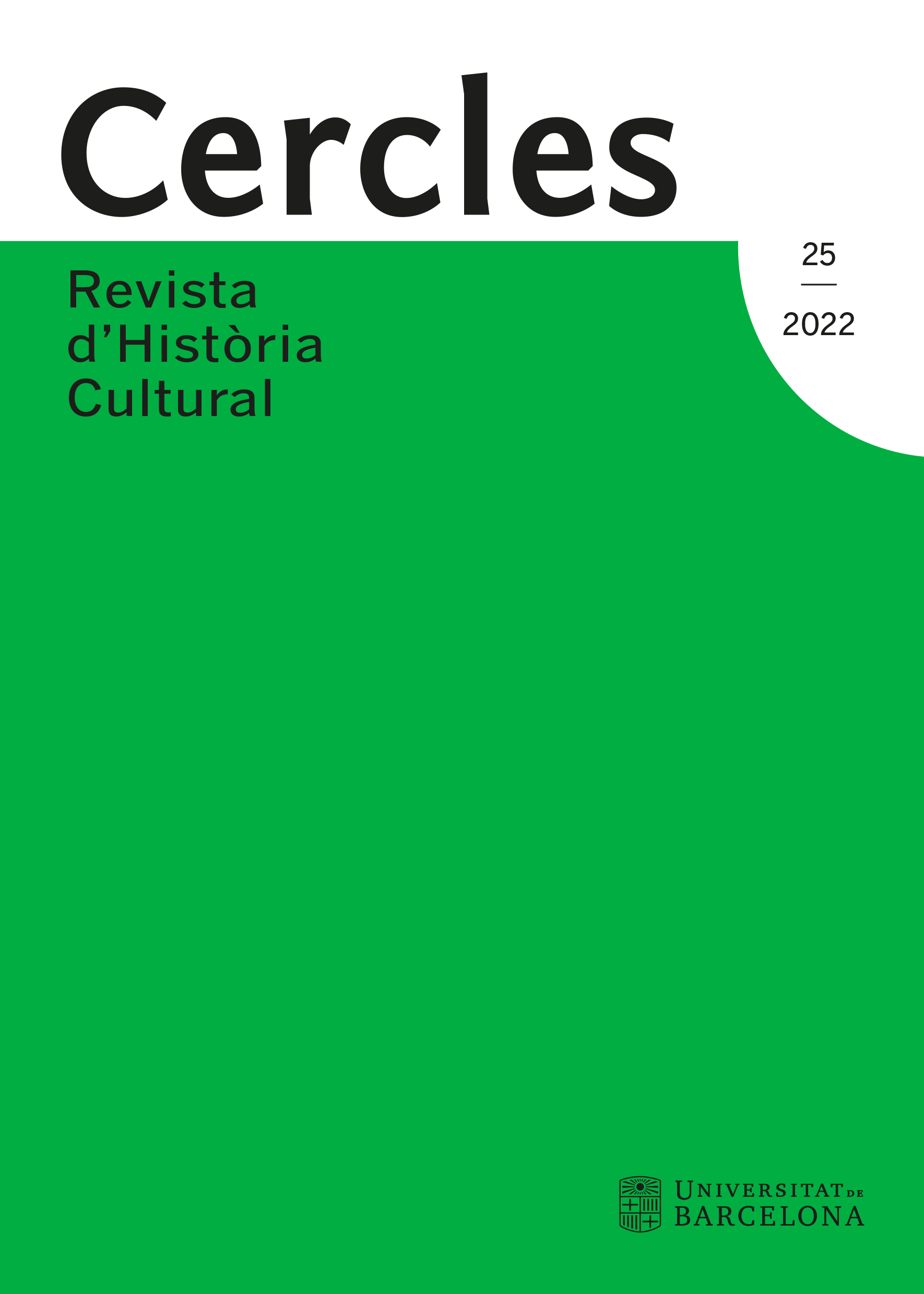Tsiganologie: The expert view of the “Gypsy question” in France
DOI:
https://doi.org/10.1344/cercles2022.25.1017Keywords:
Tsiganologie, Romani Studies, epistemology, racism, colonialismAbstract
This article explores tsiganologie, a form of expert knowledge
about the Tsiganes (Gypsies) that developed in France after the Second
World War. To do so, I take as a case study the Études Tsiganes Association,
founded in Paris in 1949, which became the centre of production and
dissemination of such knowledge in France. It is argued that tsiganologie
can be understood as a territoire savant and that the academics and amateurs
who shaped it constituted an epistemic community with the authority
to establish the scientific, social, cultural and political meaning of Tsigane
issues. The discourse of the tsiganologues is examined, revealing how
much of it they owed to nineteenth-century thought and showing
how they moulded their strategies to the intellectual context of the 1950s
and 1960s. Section I provides an overview of the background to this expert
knowledge from the end of the eighteenth century to the middle of the
twentieth; section II focuses on the foundation of Études Tsiganes and its
intellectual activity during the first two decades of its existence, and
section III, on its rivalry with the Romani movement (which arose in the
early 1960s) and the way that it affected tsiganologie.
Downloads
Published
Versions
- 2022-12-13 (2)
- 2022-11-25 (1)
Issue
Section
License
The authors who publish in this journal agree to the following terms:- Authors retain copyright and grant the journal the right of first publication.
- Texts will be published under a Creative Commons Attribution License that allows others to share the work, provided they include an acknowledgement of the work’s authorship, its initial publication in this journal and the terms of the license.




